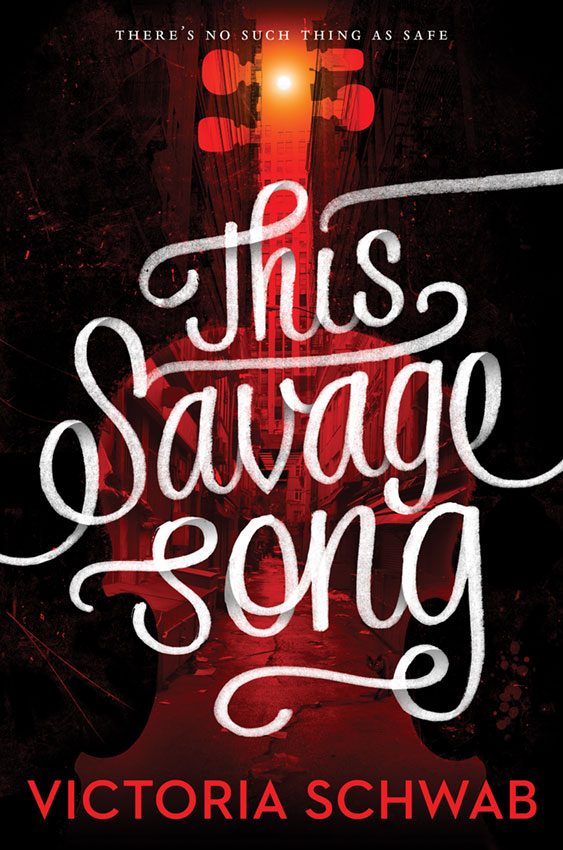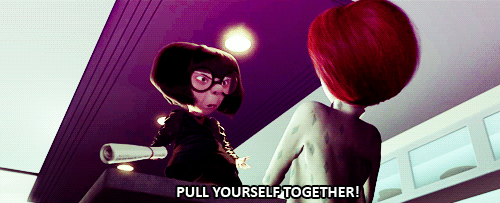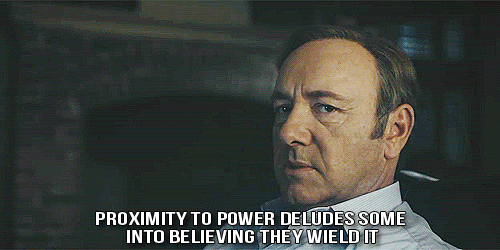This Savage Song

Adapted from : GoodReads
Those who follow us on Instagram will know that it took me awhile to get into this book. It wasn’t until I was 100 pages in that I finally realized that Kate and August weren’t siblings.
Yeah. I was more than a little confused. I then realized that the reason I was so confused was that I had accidentally skipped thirty pages… (and not read the book summary.)
 THIS IS WHAT HAPPENS WHEN YOU DON’T USE A BOOKMARK, PEOPLE. Let me be a cautionary tale to you all.
THIS IS WHAT HAPPENS WHEN YOU DON’T USE A BOOKMARK, PEOPLE. Let me be a cautionary tale to you all.
Mistake discovered, I decided to restart the book from the beginning, giving it the full attention it deserved. The second time around, I was much happier with the results.
People are users. It’s a universal truth. Use them or they’ll use you.
This quote shows just how real this book gets. In a world where monsters are born of crime, darkness is everywhere. You basically have two sides to this fight: The strong military type leader (Harker) and the soft spoken surgeon family-man who actually has an army, Flynn. Both sides control half of Verity City, a place overrun with creatures that go bump in the (day and) night.
There are a couple themes in this book that resonated really well with me and I imagine will with others. I’ll talk a little about them below:
Can you fight your nature?
August is constantly trying to deny his basic instincts because he wants nothing more than to be human. He starts off the novel as a shy, inward sort of person who wants to make the world a better place. He is at once innocent and naive, but also incredibly aware of it. It is an unsettling mix at first. Anyone who took Grade 12 English in English speaking north America should be familiar with the whole “man vs. himself” conflict and will recognize that here in spades.
Who should you fight for?
Kate on the other hand is constantly trying to prove herself to her father. She plays the part of a ruthless mini-leader but even she sometimes sees that she’s playing a role. August certainly spots it early enough. It is only (SPOILER) when she finally starts fighting for herself and distances herself from her father that she finds true strength. In the end, she is able to see things for what they truly are. Not black and white, but every shade of grey.
Appearances can be deceiving
Harker’s North City seems clean, orderly, safe. They have a working subway system, schools, gardens and forests. South City, by comparison, is a wasteland of military type buildings and needs vs. wants. There is no pretense in South City, but neither is there any luxury. So the question that I find very interesting is: which is better? The place that is genuinely unsafe, riddled with military and clawing for life, or the place that is glittering in false safety?
Who really wields the power?
The monsters of Verity are split between the two sides of the city, with the majority being “under Harker’s control” up in North City. However, as we see throughout the novel, this control is not as total as the citizens would like to believe. Power is fleeting and having total power is near impossible. Harker gets closer than most, but there comes a time when you are too comfortable with your position and you start to lose the threads of it all.

So why not 5 stars?
I guess when it comes down to it, I didn’t give this story 5 stars because it didn’t give me that giddy feeling that some series have in the past. Not to be confused with that warm fuzzy that a feel good story gives you. The giddy feeling is what happens to me when I read a story that I connect with so totally, that my nervous system can’t handle it and I start humming with energy. This Savage Song may not have given me that feeling, but it did do something a lot of YA stories fail to do: it made me think. About life and all its flaws, about how we all have monsters. Schwab has managed to take very deep life questions and place them in a genre that often dismisses them. I say this, knowing there are actually a handful of books that do tackle these ideas and themes, but few that do so as well as this book does.
And that, dear readers, is my rambly, overly philosophical two cents. What did you think of the book? Did you love it? Hate it? Are you clawing at the bit (that’s an expression I think) for the next and final installment? Let me know!
